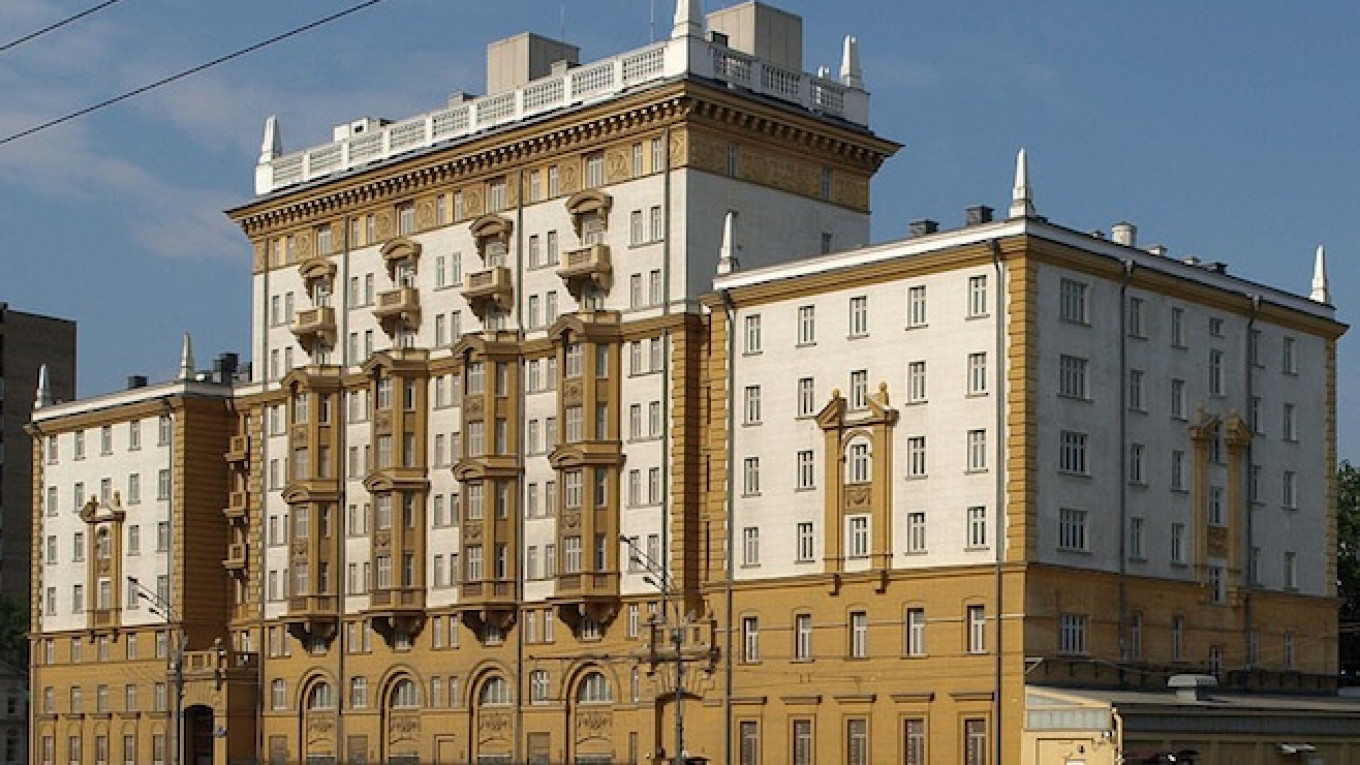State-run television channel NTV has aired the video of a Russian FSB guard attacking a U.S. diplomat outside the U.S. Embassy in Moscow, placing the blame on the American man.
The NTV program “Incidents” presented the video as an attack of an “American spy on a Russian policeman.” The video commentary closely resembles the remarks of Maria Zakharova, the Russian Foreign Ministry’s official spokesperson.
The low-quality footage shows a uniformed Russian Federal Security Service (FSB) guard attack a U.S. diplomat as he tries to enter the U.S. Embassy. Lunging at the man, the guard appears to be the aggressor in the altercation.
Regardless, The NTV correspondent narrates the video in contradiction with the visuals: The diplomat is is said to be a spy wearing a suspicious knitted hat over his face — dashing to get inside the embassy. The correspondent says he had no intention of showing his documents, which is why the Russian guard's reaction is natural and commendable given the situation.
He calls viewers attention to the fact that following the physical altercation — in which the U.S. diplomat is being pressed to the ground — he manages to crawl onto U.S. territory.
Similar versions of the account were presented by the Russian Foreign Ministry and by Russia’s Nation News.
According to NTV’s correspondent, the embassy guard — unaware of the existence of the video —responded to the report filed by the United States complaining about the treatment of diplomats, saying that the U.S. diplomat had introduced himself and presented a pass to him.
The Washington Post newspaper reported on June 29 that a security guard in an FSB uniform had assaulted an American diplomat outside the U.S. Embassy in Moscow, breaking the man’s shoulder.
A Message from The Moscow Times:
Dear readers,
We are facing unprecedented challenges. Russia's Prosecutor General's Office has designated The Moscow Times as an "undesirable" organization, criminalizing our work and putting our staff at risk of prosecution. This follows our earlier unjust labeling as a "foreign agent."
These actions are direct attempts to silence independent journalism in Russia. The authorities claim our work "discredits the decisions of the Russian leadership." We see things differently: we strive to provide accurate, unbiased reporting on Russia.
We, the journalists of The Moscow Times, refuse to be silenced. But to continue our work, we need your help.
Your support, no matter how small, makes a world of difference. If you can, please support us monthly starting from just $2. It's quick to set up, and every contribution makes a significant impact.
By supporting The Moscow Times, you're defending open, independent journalism in the face of repression. Thank you for standing with us.
Remind me later.


